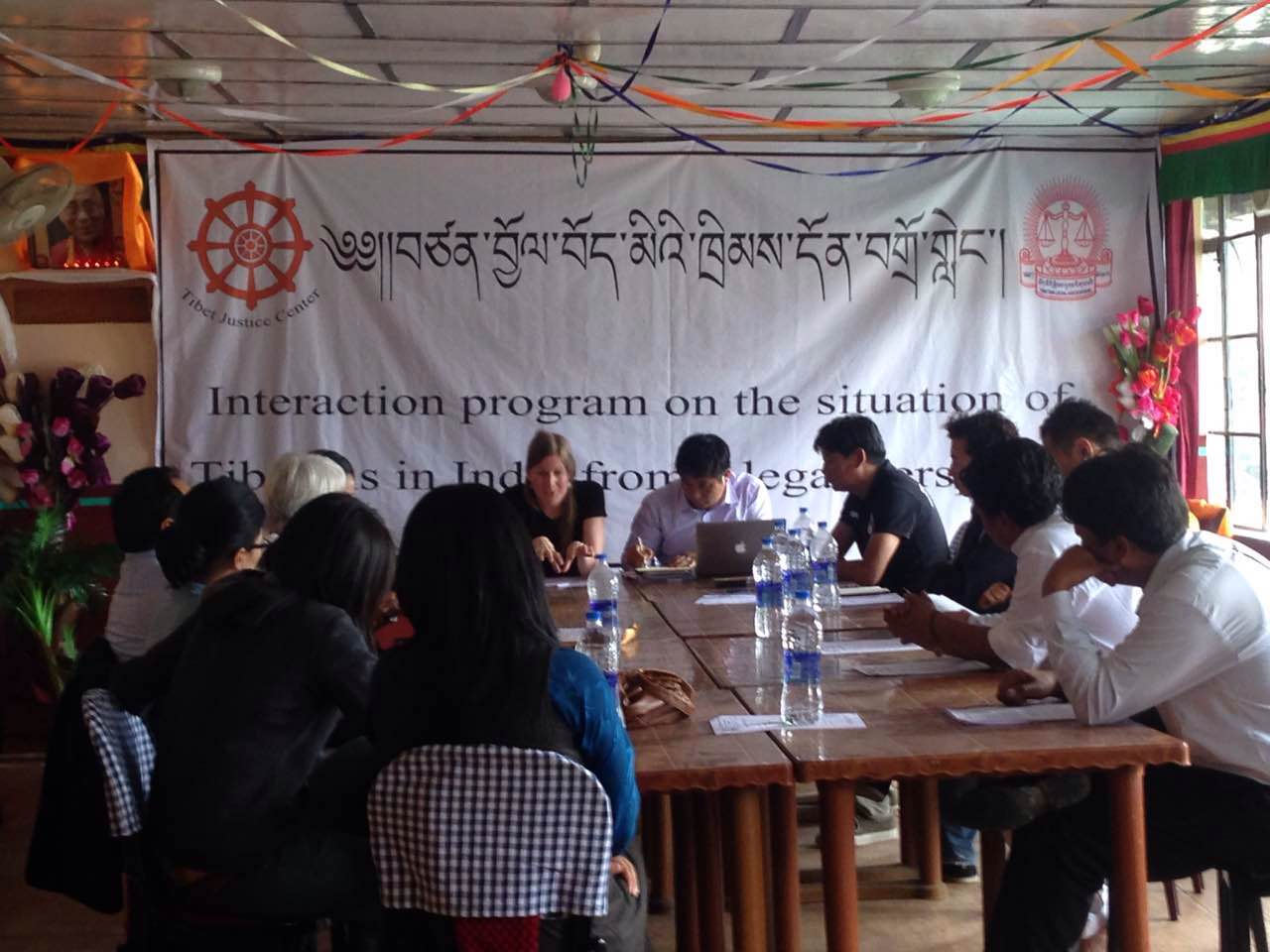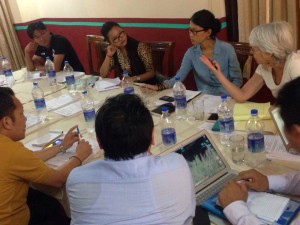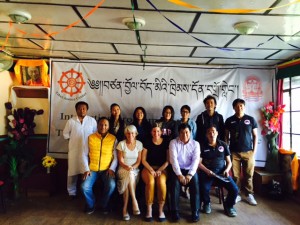Meeting of legal minds: TJC meets Tibetan lawyers in India

During TJC’s recent India research trip, we made it a priority to meet with the leadership of the Tibetan Legal Association in Dharamsala to explore ways in which the two organizations might work together to improve the lives of Tibetans in exile.
Tibetan Legal Association is a relatively newly-formed network of Tibetan lawyers based in India who aim to support the legal interests of the Tibetan community in exile by providing legal aid and other forms of support. Established in 2013, TLA will be expanding its work and reach to unite Tibetans with a legal background to support the community, including through legal aid, research, human rights workshops and support of young Tibetan lawyers.
Lobsang Dakpa, the General Secretary of TLA, and Iona Liddell, the Executive Director of TJC provided a short description of the origins and nature of their respective organizations. Eileen Kaufman framed the discussion by presenting the findings from TJC’s 2014 research trip. Members of the two groups then had a spirited conversation about the various problems faced by the Tibetan community in India. There was widespread agreement that the issues that TJC had highlighted in the 2014 report – deportation (though minimal risk currently, still a significant threat to those without up-to-date RCs), land issues, difficulty proving status either as citizens or refugees, and a wide range of restrictions and limitations particularly regarding employment – are indeed the most prominent legal challenges facing Tibetans in India. It readily became apparent that the two organizations could benefit from working together. We will keep you posted on projects.
TJC and TLA then held a jointly sponsored Interaction Program with a number of representatives of NGOs in Dharamsala where, once again, we reported on our 2014 research findings and solicited feedback about the most serious problems facing the Tibetan community in India. The day’s meetings ended with a commitment to continue to explore ways in which TJC and TLA might work together. For example, there is reportedly a large number of Tibetans seeking asylum in Belgium and TLA has provided some assistance. We agreed to learn more about this and, if appropriate, to produce documentation concerning the vulnerability these Tibetans would face if returned to India.




